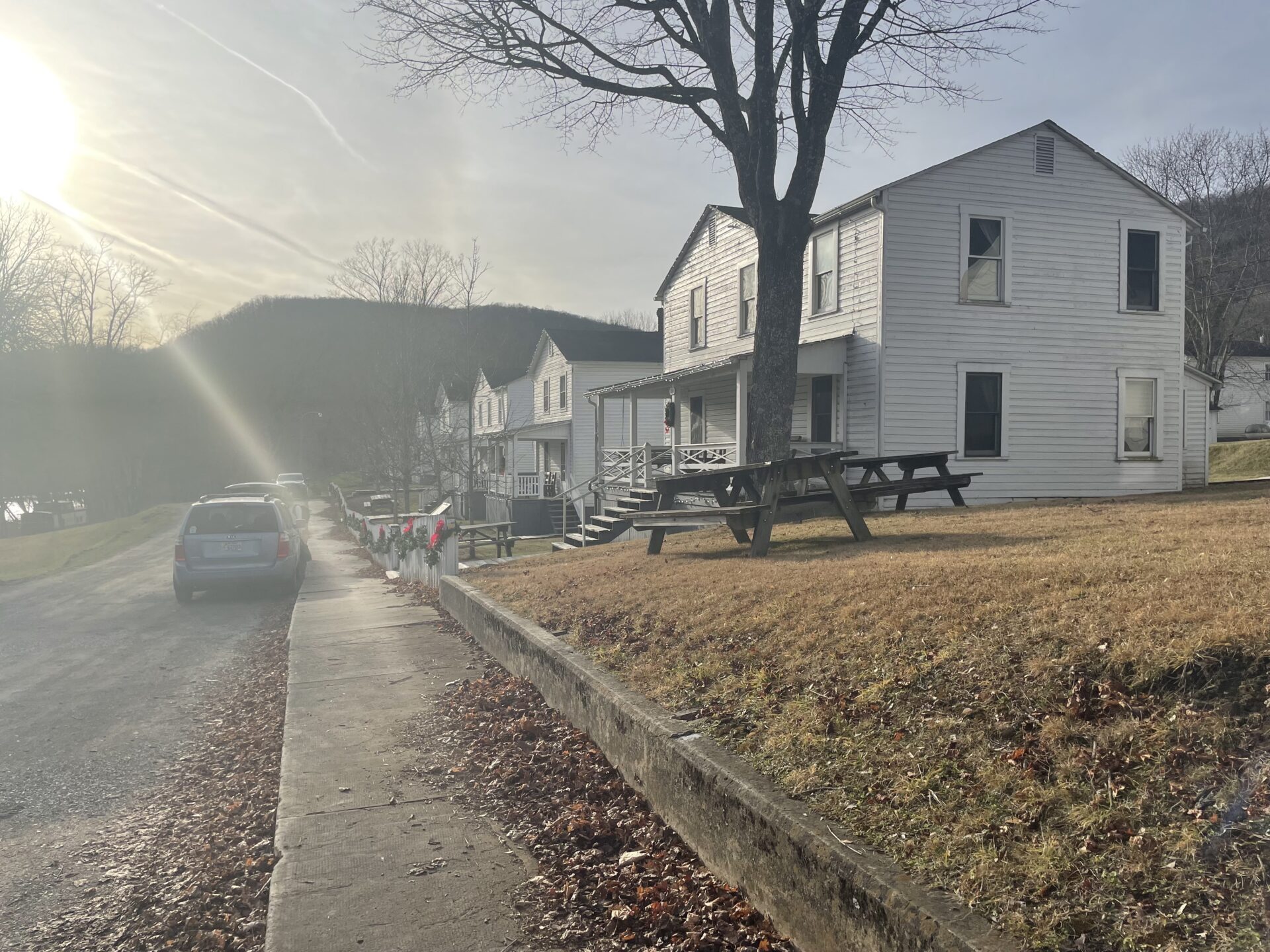Editor’s Note: Ramps are celebrated in Appalachia as a special delicacy — one that has caught the attention of chefs in major metropolitan cities as well. But they still have to be dug up by hand.
Inside Appalachia Producer Bill Lynch went into the woods with a friend to bring us this first-person story about ramp harvesting.
It’s a dry day at the end of April and I’m in a location that can’t be disclosed. Partly, this is because we’re gathering ramps and foragers like my friend Jamie keep these places secret.
Foragers will sometimes even keep the fact that they hunt for wild foods (mostly) a secret to keep from being asked to share. So to protect my friend from having to answer awkward questions at parties and to discourage strange men from following her into the woods, we’re not using Jamie’s last name.
And partly I can’t disclose the location because I don’t know exactly where we are – except to say somewhere in Kanawha County. Probably.
This is my second time gathering ramps. I went out a couple years ago and brought home a shopping bag full of the garlicky smelling things. I cooked some of them with beans and ham, but gave most of them away to whoever would take them.
This time, I’m just following along with Jamie while she collects some for friends and her mom.
“That little ridge over there. Is it easier for you to go first or me?” Jamie asked.
“I dunno,” I said.
From the car, we hike for about 15 minutes until we get to the patch. We’re not far from the road and other people have been here before.
Sandwich and chip wrappers, plastic cups and a flattened Monster energy drink litter the ground. The steep hillside seems like a weird place to have a picnic.
Jamie tells me she’s been foraging for about 10 years. She’s self-taught. Ramps were kind of a gateway into the world of finding wild food.
“They’re one of the easiest things to start foraging in West Virginia,” Jamie said. “Before that, I’d pay $20 a bag at whatever roadside swap meet I could find.”
This is not unusual.
Ramps have always had admirers.
For generations, they were often a nutritious (if smelly) staple for people who hadn’t seen edible leafy greens all winter.
In recent years, the wild leeks have become must-haves for foodies and locavores who appreciate seasonal foods.
Ramps are picked and eaten throughout the eastern part of the United States and Canada. In West Virginia, the season for ramps usually runs during the cool, damp of spring, from around the end of March until the early part of May.
Throughout April, ramp dinners are held all over the state and a few local restaurants will add them to their menus for a limited time.
To the uninitiated, ramps look like another leafy weed in the woods, but you can’t miss the sharp smell of onions and garlic.
The ramp patch Jamie takes me to is huge. Ramps cover the side of the hill in great clumps, but they’re not all that easy to get to, particularly if you’re carrying a microphone and wearing boots that are made more for hiking to a coffee shop than going out in the woods.
So, I stand by a tree while Jamie climbs down the side of the hill with a bag and a gardening trowel. She digs out a few bunches here and there and leaves the rest.
Just taking some of the ramps is being responsible. She wants them to come back. Besides, not all of the ramps are worth taking. The season is coming to an end.
“How do you tell when these things are done?” I asked.
“When they disappear,” she said. “They won’t be here in two weeks. They’re just gone.”
Jamie explained the life cycle of the ramp.
“They’ll put up a little stick,” she said. “And it has these little bulbs on it. The seeds come in little clusters and there’s one little runner up, like an onion.”
She didn’t see any runners, but the ramps were ready to come out of the ground, which was different than the ramps she harvested a few weeks ago.
“There was a lot of digging involved with the babies I got at the start of the season,” Jamie said. “This time there wasn’t anything to it. Just give it a little scoop and they just pull from the soil.”
These ramps, she promised, would be much more pungent and have a stronger flavor, but they were also dying.
“Did you see how the leaves are turning yellow?” Jamie asked. “You’re getting what looks like brown spots on your houseplants. They’re done. They’re just getting old, like how things will dry out in your fridge.”
Jamie fills up her grocery bag. Then she leads me out of the woods and back to the car. We put the bag in the trunk and then start towards Charleston.
Driving back to the city for a dinner I promised, I noticed the smell.
“I can really smell it now,” I said. “Driving around I can really smell it.”
Jamie rolled down her window.
“Uh-huh,” she said. “That’s why we’re going to stop at the house on the way out to eat. We’re not doing this.”
